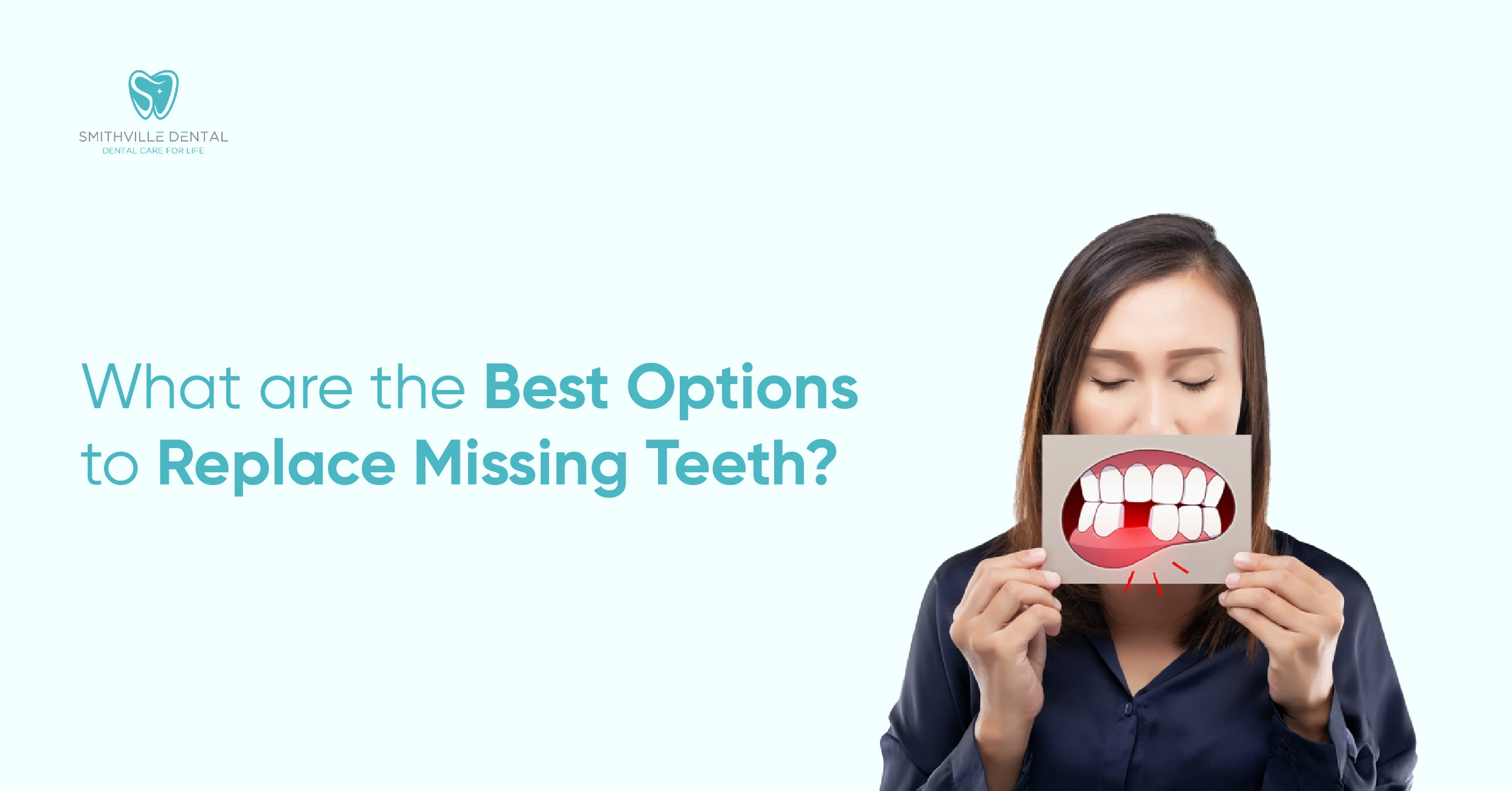Losing a tooth can dramatically affect oral health, appearance, and thus, one’s self-confidence. Fortunately, modern dentistry presents several excellent options for replacing missing teeth: restorations that return function and aesthetics to the mouth. Here are today’s best tooth replacement options with its benefits and considerations.
Options To Replace Missing Teeth
At Smithville Dental we provide the best options to replace missing teeth at the most affordable prices for patients of all age groups. Here is a list of options to replace missing teeth:
Dental Bridges
Dental bridges are another sound approach to replacing one or more missing teeth. Bridge can be defined simply as an artificial tooth or artificial teeth anchored on crowns attached to either side of the adjacent healthy roots of the natural teeth.
Benefits:
- Bridges restore the complete smile and the ability to chew.
- Typically, the treatment for performing a bridge may be completed in as few as three visits.
- More cost-effective than implants, especially when replacing multiple adjacent missing teeth.
Disadvantages:
- To stable the bridge, two healthy adjacent teeth on either side of the space must be ground down.
- Unlike an implant, a bridge does not prevent degradation of the jawbone since it does not stimulate the bone.
- Bridges usually last for 5 to 15 years and could require replacement over time.
Dentures (Full or Partial)
Dentures are removable prosthetic appliances that replace some missing teeth (partial dentures) or the entire upper and/or lower arch of teeth (full dentures). They are fabricated to fit your gums perfectly, and you can remove them at any time.
Advantages:
- Dentures are usually the least expensive treatment for several missing teeth.
- Dentures do not require any surgery.
- Over a lifetime, dentures can be adjusted or replaced.
Disadvantages
- Dentures may move or slide, especially while eating or speaking. It takes time to become accustomed to their use.
- Dentures stop bone loss, but with time, the bone shape will change and you will have to refit your dentures.
- Daily cleaning and proper care ensure they can endure long periods of time.
Removable Partial Dentures
Removable partial dentures are perfect for the patient who needs replacement of a couple of teeth in different parts of the mouth. This consists of artificial teeth attached to a gum-colored base and in most cases supported by a metal framework which clamps on to natural teeth close to the affected area.
Advantages:
- Partial dentures are cheaper than bridges or implants.
- They can easily be taken off to allow cleaning and maintenance.
- No surgery is needed and no adjacent teeth are involved.
Disadvantages
- The fit of the partial denture, like that of a complete denture, can be bulky and may shift during any type of chewing or speaking.
- Residual partial dentures cannot arrest bone loss in the jaws.
Conclusion
The best option to fill missing teeth depends on some factors like budget, oral health, and personal preferences. Dental implants are the most durable and natural solution but cost a lot of money and require surgery. Dental bridges and partial dentures are cheaper and easier to install; however, they will require more maintenance or replacement in the long run.
Consulting with a dental professional at Smithville Dental will help you determine the best tooth replacement with your specific needs in mind, thus regaining your smile with functionality.

 Book Appointment
Book Appointment